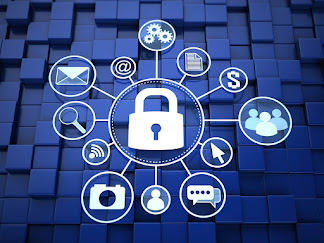COMPUTER SECURITY: TAKING ADVANTAGE OF TELEWORKING
Teleworking is on the rise. But beyond its many practical aspects, what about IT security? Some tips and points of vigilance to avoid pitfalls.
Teleworking is attracting more and more employees in the
private sector. Nevertheless, working from home inevitably raises the question
of computer security. To avoid any danger, here are some cybersecurity measures
to put in place for your teleworking employees.
Teleworking and cybersecurity: challenges to be met
The many advantages offered by working from home are actually
tending to attract more and more workers. However, computer security issues
still contribute to fueling employers' reluctance to work from home.
To fully exploit the advantages of teleworking, it is
therefore necessary to take the appropriate measures to best secure the data
and anticipate the risks of cyberattacks. Ultimately, the challenge is to
secure the workstations of teleworkers as well as the workstations installed in
the company's premises.
In the office as in telework, priority to secure networks
Although working from home is in a familiar environment, it is
essential to pass work data through secure virtual private networks (VPN). VPN
networks are designed to connect company computers directly to those of
teleworkers. This precaution prevents data from being directly intercepted as
is the case on unprotected internet networks.
In addition, the computers of teleworkers must benefit from
the same protection measures as those of the company's IT equipment, with antivirus software and
other threat detection tools.
Use a single, secure terminal for professional activities
To avoid risks in terms of IT security, it is essential that
your employees work on their professional terminals, previously validated by
your service provider or IT department. Indeed, the multiplication of
non-compliant terminals in terms of security to access professional data increases
the risk of cyber-attacks.
Access to data must also be strengthened. The use of an
identifier and a password to secure the computer is necessary, so that no third
party or person close to the teleworker can use this workstation.
Make teleworkers aware of risky IT behavior
Finally, we must not forget that the best material protection
will not be immune to faults of human origin. Raising teleworkers' awareness of
good cybersecurity practices must therefore also be carried out at the same
time for effective security.
Also make sure that your teleworking employees have direct,
competent contacts available 24 hours a day, to whom they can turn if in doubt
about the security of their IT system. In the event of a cyber-attack, contamination
from one workstation to another, even remotely, can be extremely rapid.
Another tip: set up an IT security charter to maximize the
vigilance of teleworkers. It may include warnings about risky behavior that could
lead to security breaches.
By way of example, this IT security charter may thus include
the following recommendations:
· Prohibit
any sending of professional mails and / or files via personal messaging to
reduce the risk of information leaks;
· Avoid any
connection to unreliable public WiFi. It is also preferable to opt for a wired
connection;
· Do not
give access to your professional computer to those close to you to avoid the
risk of improper handling;
· Take the
time to regularly update the security settings;
· Avoid the
use of external devices for data transfers knowing that USB drives and external
hard drives can easily be infected with malware.
Just by adopting these best practices, many IT security risks
can be avoided!




Comments
Post a Comment